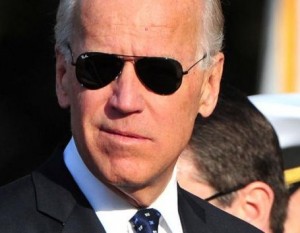by | ARTICLES, BLOG, BUSINESS, ECONOMY, HYPOCRISY, OBAMA, POLITICS, TAXES
Michelle Nunn has been getting a lot of traction on the “shipping jobs overseas” rhetoric in an effort to paint her opponent, David Purdue, as unsympathetic to American workers. It’s a tactic toward anyone who is in business to demagogue them for shipping jobs overseas, just like they did to Romney in 2012.
Michelle’s cheap shots have lead her to create an ad campaign specifically focused on this narrative. Hours of countless searching has turned up a deposition from 2005, during which David Perdue “answered a question about his ‘experience’ with outsourcing by saying: ‘Yeah, I spent most of my career doing that.’”
Unfortunately, she made a bad decision about whom she chose to highlight — it turns out the ad features a businessman, Roy Richards Jr, whose company has also outsourced jobs. Perhaps she should have done her homework on him instead.
Politifact of Georgia couldn’t even make the stretch that Purdue’s career outsourcing meant that he “was proud to have sent jobs overseas”. Politifact noted, “it is accurate to claim Perdue’s sworn statement is that he spent most of his business career outsourcing. But that doesn’t translate into callous indifference to American workers – or even a tenure that did nothing more than ship jobs abroad. We continue to rate the claim Half True.”
The Washington Examiner goes more in-depth to the nature of his business dealings:
“Perdue was not referring to outsourcing as most understand it – that is, the process of firing American workers in favor of cheap labor overseas — but rather a business plan for his former company, Pillowtex, to save some American jobs, as Politifact noted.
“There is nothing to suggest he was narrowly moving jobs overseas just to increase profits or give himself a bonus,” said Rob Bliss, a finance professor at Wake Forest University in an interview with Politifact. “Moving jobs overseas would have been an effort to make the company more competitive. It’s a perfectly legitimate thing to do.”
Politifact also noted other companies where Perdue worked that did outsource jobs, but said those companies were “in industries where jobs were being lost to both cheaper foreign production — outsourcing — and also to technology and global business trends far outside his scope of control.”
As for the attack ad trying to substantiate that Perdue despises American workers, National Review Online called it “seriously hypocritical” since the featured businessman apparently also engaged in outsourcing at his own company. The Atlantic Journal-Constitution gives a rundown here. And NRO noted that “Cato’s Dan Ikenson has explained in Forbes, relocating jobs overseas can have as much to do with costs for customers, proximity to supply chains, or interest in new consumer markets as it does with labor costs and profitability.” Simply put, it’s a stretch to boil down “outsourcing” as simply disdain for the American worker for the sake of profit. But that is what Michelle Nunn wants you to believe.
Businesses continuously make decisions about where to get jobs and how to keep a company afloat. If the policies here in the United States are making it difficult to succeed and compete, or the market and demand has changed, that’s not the fault of the business owner. They must be willing to adapt or risk going out of business. Someone as ignorant as Michelle Nunn about basic economics should not be elected to Senate.
by | ARTICLES, BLOG, ECONOMY, FREEDOM, GOVERNMENT, OBAMA, POLITICS, TAXES

During a speech at UNLV this week, Hillary Clinton discussed higher education and her opinion that “more needs to be done to assure young people can achieve their dreams and free students from debt.”
While making higher education more affordable is certainly a worthwhile endeavor, the means by which the Democrats have made changes — and continue to push for more change — to the student loan system will cause even higher tuition costs, unsustainable taxpayer debt, and create another rail of entitlement.
The first wave of detrimental change came in 2010 with the Pay-As-You-Earn Program implemented in 2010. Essentially, PAYE has repayment options based on 10% of discretionary income. However, if the payment doesn’t cover the accruing interest, the government pays your unpaid accruing interested for up to three years from when you begin paying back your loan under the PAYE program.” That means the taxpayer.
Obama expanded that 10% income cap this past June with an Executive Order. Its purpose is to extend “such relief to an estimated five million people with older loans who are currently ineligible”, according to the New York Times.
Though this Executive Order — and its 2010 law counterpart — may sound well and good, financially it is a disaster. The 10% income repayment does not help any young person get off on a solid financial footing. Likewise, because some sectors allow for loan forgiveness after a period of time, that amount gets written off by the federal government, thereby substantially adding to the federal debt.
And what of the federal debt? Earlier this summer, CNS News compared the current cumulative outstanding balance on federal student loans to the balance owed in January 2009, and found it had skyrocketed 517.4 percent:
“The balance owed as of the end of May was $739,641,000,000.00. That is an increase of $619,838,000,000.00 from the balance that was owed as of the end of January 2009, when it was $119,803,000,000.00, according to the Monthly Treasury Statement”.
They then compared it to George Bush’s tenure:
“During President George W. Bush’s time in office, the amount of outstanding loans increased from $67,979,000,000.00 in January of 2001 to $119,803,000,000 in January of 2009, an increase of 76.2%. This means that under President Obama, the amount of federal direct student loans increased 579% more than under President Bush.”
The most influential factor in this rapid rise of student loan debt is the PAYE program repayment terms. Besides the 10% option, students also have two other possibilities of loan help, known as “forgiveness:”
1) The balance of your loan can be forgiven after 20 years if you meet certain criteria, OR 2) Your loan can be forgiven after 10 years if you go to work for a public service organization (known as Public Service Loan Forgiveness, or PSLF).
The Wall Street Journal recently discussed the impact of “loan forgiveness” when it highlighted a report from the New America Foundation, which analyzed the PLSF impact. The WSJ noted that the report found “it will not be a small population of borrowers standing in line for this gift from taxpayers. The federal government estimates that a quarter of all jobs may qualify”.
Furthermore, the study concluded that:
“it could become common for the government to pay for a student’s entire graduate education via loan forgiveness” if those kids take jobs at a nonprofit or in government. The new payment terms for such borrowers “are unlikely to cause many graduate and professional students to fully repay their loans—even if they earn a competitive salary in their chosen careers or a salary that places them among upper-income Americans.”
and also,
“This will likely provide an incentive for graduate and professional students to borrow more rather than less, particularly for some professions. It should also make graduate students less sensitive to the price of a graduate or professional degree, allowing institutions to charge higher tuitions, especially for certain programs like healthcare, social work, education, and government, where borrowers would go on to qualify for PSLF.”
The government meddling in higher education and loan programs has perpetuated more crises, which in turn has created more government “fixes”, and hence, a new-tier of entitlements — this time, for education. And that’s not all. Senator Elizabeth Warren proposed a bill earlier this year allowing student loan holders to refinance their loans at a lower rate. How? You guessed it: a bailout to be paid for by yet another tax on the wealthy. President Obama, of course, has endorsed this legislation, but it has yet to pass Congress.
The long-term effect of such an education policy is that a new generation of youth will be raised to pursue careers in the public and non-profit sectors by the dangling carrot of free education money — instead of slugging it out in the private sector.
Do we need more regulators and bureaucrats? Where is the encouragement for innovation, for entrepreneurship, for capitalism? Where is the risk-taking? Why risk-take when you can get your education paid for by taxpayer-funded loan forgiveness and a comfortable government or non-profit job?
Small businesses have been the backbone of America. Our country was built upon those who were willing to invest their time and money to become great. This approach to education is undeniably detrimental to our future by saddling taxpayers with unseemly debt while discouraging our young people from seeking private enterprise. That is not the American Dream.
by | ARTICLES, CONSTITUTION, ELECTIONS, FREEDOM, GOVERNMENT, OBAMA, POLITICS
Last week on October 7, it was reported that Liberia’s President, Ellen Johnson Sirleaf, asked for more emergency powers to help contain and prevent the current Ebola crisis. Liberia is already under a state of emergency and curfew, which began in August. But according to VOA News:
“In a letter to the Plenary of the House of Representatives and the Senate, Sirleaf asked for powers to amend seven different articles under the constitution, including freedom of movement, speech, religion, confiscation of private property, and elections.”
Besides asking for extra powers, and citing the current “state of emergency”, President Sirleaf then proceeded on October 8th to suspend nationwide elections for Senate due to be held later this month. Yahoo News reported that,
“Almost three million voters had been due to take part in Senate polls on Tuesday but organisers said there was no way a “mass movement, deployment and gathering of people” could go ahead without endangering lives.”. A presidential proclamation claimed the state of emergency allowed her to “to suspend… any and all rights ordinarily exercised, enjoyed and guaranteed to citizens.”
You can read her power request letter here.
One chilling request is that “the president has asked for a temporary extension of the state of emergency removing a constitutional right to make public speeches which could “undermine” the response to the epidemic.”
Opposition to the election suspension was swift. Tokpa Mulbah, a member of the House of Representatives from the People Unification Party, stated that “The Chief Executive, Madam Sirleaf, does not have that constitutional authority to make such a pronouncement. So based on that, we will be drafting a resolution Thursday to be sent to the Liberian Senate for a vote and placed in front Madam Sirleaf to sign so that the Elections Commission can go ahead to conduct elections from now till December 30 so that come second Tuesday in January the new 15 senators will be able to take their seats.”
In fact, the House went on to vote to reject Sileaf’s request “for more powers to restrict freedom of Movements, speech, religion, assembly and of the press, as well as property rights, through a motion filed by Representative Brown. Both Houses, in a Joint Resolution passed on Friday, October 10, 2014, unanimously voted to overturn a President Sirleaf’s decision to indefinitely cancel the October 14 Mid Term Senatorial elections.”
Is is unclear if the Senate concurred with the House. According to AllAfrica, the Senate is torn and is still debating.
Freedom of the Press has also been under attack since the curfew. Apparently, “journalists were not included on a list of exempted professions able to move freely around the country at night. (They were added six days later.) In early October, citing privacy concerns, the government announced that reporters could be arrested for speaking with Ebola patients or photographing treatment centers without written permission from the health ministry.” Further information regarding the freedom of the press during the Ebola crisis can be found here.
Liberia spent two decades of civil war, and the election of President Sirleaf was seen as a more stable, constitutional rule. Liberians should reject this attempted power grab, even in the midst of such a tragic time in their country, in order to safeguard their liberties for the long-haul.
by | ARTICLES, ECONOMY, FREEDOM, GOVERNMENT, OBAMA, OBAMACARE, POLITICS, TAX TIPS

This Washington Times piece did a nice overview of FY2014:
The Treasury Department unveiled its Fiscal Year 2014 numbers, which showed that the government’s revenue, for the first time ever, hit the $3 trillion mark. However, the government still overspent its revenues, leaving a $483 billion deficit.
Supporters of President Obama are touting the “success” of a $483 billion deficit by pointing out its the lowest deficit since 2008. A “mere” $483 billion deficit is not something to be celebrated. It means that, despite record revenues, the government still engages in out-of-control spending.
By comparison:
“The government first hit the $1 trillion revenue mark in 1990, then hit the $2 trillion mark in 2000. But President George W. Bush’s tax cuts and the bursting of the 1990s Internet bubble cut into revenue, dropping it to $1.8 trillion in 2003, before it began the shaky climb to $3 trillion.
Just five years ago, in 2009, the trough of the recession, revenue was only $2.1 trillion. That means it’s leapt $900 billion in just five years.”
And here’s where the dichotomy lies. The Left sees high government revenue as something to be celebrated, while the Right understands that high government revenue means less money for the private sector. “Every one of those $3 trillion is sucked out of the private-sector economy and makes the private sector smaller,” said Chris Edwards, director of tax-policy studies at the Cato Institute. “The $3 trillion isn’t free. It comes out of our pockets and from the private economy.”
Contrast his analysis with Jack Lew’s, Treasury Secretary. “The president’s policies and a strengthening U.S. economy have resulted in a reduction of the U.S. budget deficit of approximately two-thirds — the fastest sustained deficit reduction since World War II,” Mr. Lew said.
What are those “president’s policies”? Successful tax hikes. The highest 2% earners saw their tax margins increase; all earners saw their payroll taxes go up. And don’t forget the Obamacare taxes. The full list of all of Obama’s tax increases can be found here.
Perhaps the most profound statement can be summed up here: “Spending, meanwhile, has remained relatively flat at about $3.5 trillion.”
When spending is “flat” at $3.5 trillion, we definitely have a problem. Each year since 2009, the Obama Administration has spent over $3 trillion, the only president to ever do so: From 2009 – 2013 respectively, here are the numbers of spending in per year: 2009: $3,517,677; 2010: 3,457,079; 2011: $3,603,059; 2012: $3,537,127; 2013: $3,454,605. For a full chart of historical federal spending per year, go here. Federal spending has remained consistent at around $3.5 trillion/year — consistently high. Over-budget. And adding deeply to the deficit each year.
It will be interesting to revisit this next year at the end of FY2015, when Obamacare, the crowning Obama policy achievement, really gets going. Remember how Obamacare was going to reduce deficits? About that. The Weekly Standard recently did a thorough analysis of Obamacare projections and found that:
“So, compared to the deficit surplus of $180 billion for 2015-24 that a straight extrapolation from the CBO’s 2012 scoring would yield, current projections now indicate that Obamacare’s decreased spending (in relation to prior expectations) will reduce deficits by another $83 billion (bringing the estimated surplus to $263 billion), but those projected surpluses will be more than offset by the projected $132 billion decrease in Medicare revenue and $262 billion decrease in tax revenue due to lower job growth.
In all, therefore, CBO projections indicate that Obamacare will increase deficit spending by $131 billion from 2015-24. That’s a $311 billion swing from the extrapolated 2012 numbers, a $240 billion swing from the actual 2012 numbers, and a $255 billion swing from what we were told when Obamacare was passed.
So, this fiscal year was more of the same. Government overspending, gleefully celebrated by record tax collections of your hard earned dollars. The rapacious government needs to be fed.
by | ARTICLES, BLOG, BUSINESS, ECONOMY, GOVERNMENT, OBAMA, POLITICS, TAXES

While stumping for Democrat candidates in Oregon, the Vice President shared his thoughts on the current economy with voters. And he got it very wrong.
“Economic growth has replaced the income that was lost during the recession, but the gains went primarily to taxpayers on the top. I think we should make them start to pay their fair share. Take the burden off the middle class”
Economic growth has not happened. Since Obama began his presidency:
The national debt has skyrocketed from $10.6 trillion to $17.8 trillion
Homeownership has decreased from 67.5% to less than 65%
Labor participation has fallen from about 66% to 63%.
Food stamp use has increased from 32 million to 46 million participants
Lost income has not been replaced: Since Obama began his presidency:
Median incomes have decreased from about $54,000 to $51,500.
The number of Americans who consider themselves middle class has dropped nearly 20%
Gains did not primarily go to taxpayers on top:
“The top 20 percent of earners accounted for 51 percent of all income in 2013, unchanged from 2012 and up slightly from 49.4 percent in 1999″.
Of course, Biden used his (wrong) economic talking points to pull out the old class-warfare playbook and insist that the rich “pay their fair share”.
Finally, if Biden is concerned about taking the burden off the middle class, he needs to start with the government. As I said earlier this week, the middle class has been the most devastated by Obama’s policies. Job growth and small business sustainability have been decimated by government regulation, taxation, fines, and lawsuits meddling in normal business practices. The middle class can’t get good jobs anymore, businesses have failed, growth is tepid, and everyday Americans are rightfully discouraged.
by | ARTICLES, BUSINESS, ECONOMY, GOVERNMENT, OBAMA, POLITICS, TAXES

Suddenly, Obama is everywhere talking about economic policies again. He is the mastermind behind the growth in corporate profits. He is the reason for the current stock market highs. He has single-handedly reduced unemployment to its lowest rate since 2008. He is Obama!
And yet, the middle class is repeatedly telling Obama that they feel left behind.
Why such disparity? The Administration can try to attribute these recent “successes” to Obama, but it only shows that they have a laughable cluelessness about what is really happening as a result of his economic policies.
Major corporations are doing well because they have enough size and stability to weather the storm created by Obama’s terrible business policies. This has included minimizing employment and trying to be as lean and efficient as possible. Mom-and-pops, on the other hand, have not the luxury to be as resilient.
The stock market is high only because major corporations have continued to persevere by changing the way they do business. Because of the government policies — including over-regulation and excessive taxation — companies have been forced to operate on the skinny just to survive. By doing so, profits are able to be maintained and the stock market reactive to that.
As a result of efficiency, therefore, unemployment is at its lowest percentage because there are no jobs to be attained anymore and people are just simply leaving the workforce altogether. Obama refuses to acknowledge the fact that labor participation is at its lowest rate since 1962. That is the major contributing factor to his “low” unemployment number — not because of job creation as he claims. Americans have stopped looking for work.
Thus, the middle class has the correct assessment because they have been the most devastated by Obama’s policies. Job growth and small business sustainability have been decimated by government regulation, taxation, fines, and lawsuits meddling in normal business practices. The middle class can’t get good jobs anymore, businesses have failed, growth is tepid, and everyday Americans are rightfully discouraged.
Related: “AP’s ‘Fact Check’ of Obama’s ‘Stronger Economy’ Claims Limited to ‘A Few’ Items: Two”
Lou Dobbs Refutes Obama’s Claim that the Economy Has Improved by Every Economic Measure
Are You Better Off Today? Here are the True Facts & Figures From the Obama Economy
by | ARTICLES, ECONOMY, FREEDOM, GOVERNMENT, NEW YORK, OBAMA, POLITICS, TAXES

I have written on this subject before, and now the effects of high taxes and population migration are playing out in a substantial, political way: the decline of about 40% of Congressional seats in the northeast.
According to the Census Bureau, high taxpayers are moving south. It notes that in the 11 states that comprise the Northeast, population grew at a rate of only 15% over the thirty year span from 1983-2013, while the rest of the nation grew at roughly 41%. The key factor is high taxes. The result is a loss of Congressional seats there.
The American Legislative Exchange Council recently did a comprehensive study on House representation in 1950 from Maine to Pennsylvania, and compared it to current House seats. In 1950, there were 141 House members, but today there are only 85. Remember House seats are based on population — so this change is a 40% loss of power.
Need a dramatic comparison? Texas and California combined together now have more House seats than the Northeast conglomerate. For an area that used to be a political powerhouse, it is becoming increasingly marginalized due to excessive taxes and the ensuing population shift.
In 2011, Reuters had a lengthy article detailing how northern residents were fleeing massive state and local tax hikes. I wrote about the impact of high taxes on New York population loss here in 2012. And the NYTimes reported in December 2013 that Florida was soon to pass New York in population.
High taxes are a major factor in this population and political change, and it will be interesting to watch in the next few election cycles. As the report notes above, “This result is one of the most dramatic demographic shifts in American history. This migration is shifting the power center of America right before our very eyes. The movement isn’t random or even about weather or resources. Economic freedom is the magnet and states ignore this force at their own peril.”
by | ARTICLES, BUSINESS, ECONOMY, FREEDOM, GOVERNMENT, OBAMA, POLITICS, TAXES

Discussion began heating up again about the “internet tax” last week when lawmakers pushed back the moratorium on Internet access taxes — set to expire on Nov. 1 — until mid-December during the lame-duck session. In the meantime, let’s call it out for what it really is: a revenue grabber masquerading as “fairness”.
Last year the Senate passed the online sales tax bill, formally known as the “Marketplace Fairness Act”. There is nothing fair about this act. It is a back-door way for states to add additional levies on their citizens under the guise of leveling the playing field . From an accountant’s perspective, here’s how:
Most proponents of the bill suggest that there is somehow a dearth of tax revenue from which states are suffering terribly. This sentiment was echoed at the time in the pages of the WSJ by Arthur Laffer. He wrote that “the exemption of Internet and out-of-state retailers from collecting state sales taxes reduced state revenues by $23.3 billion in 2012 alone, according to an estimate by the National Conference of State Legislatures. The absence of these revenues has not served to put a lid on state-government spending. Instead, it has led to higher marginal rates in the 43 states that levy income taxes”.
But this is simply and patently untrue. State legislatures have always set their tax rates with the full understanding that they would not actually collect that supposed $23.3 billion of internet “slippage”. It’s not like there is a line item in state budgets that lists “uncollected online tax” or “tax cheats” with a number attached. Sales tax is one of many levies whose revenues positively fund government spending. This online tax, if passed by the House next and signed into law, will just be yet another tax (and therefore revenue) for the coffers. Higher marginal rates exists because state-government spending levels are higher, not because of some “absence of tax” nonsense that forces states to raise rates.
In our states’ budgets, current taxes rates (income + sales, if applicable) are set at levels appropriate to cover the calculations of state spending. 49 out of 50 states require a balanced budget. These states are fully aware that taxes are “avoided” (internet and out-of-state) and therefore don’t even count them in their budget calculations. So there is no concrete “absence of revenue”. Instead, by passing this new internet tax, you are merely giving the states a free reign to add a tax without taking the political heat for it, under the guise of “fairness”.
Looked at it another way, it is unconscionable for Congress to pass this legislation without requiring that states lower their marginal rates so that the new tax makes everything revenue neutral. Higher marginal rates as they are already burden taxpayers. This internet tax doesn’t fix anything — because there is nothing in their budgets to be “fixed”. True tax reform (a true “fix”) always means broadening the base and thereby reducing the overall burden of taxes. Instead of that, what we have with this bill is a revenue grab.
Another fallacy for supporters is that including the internet tax in transactions is simply a matter of adding a quick, little tax line where there was none before. But it is highly irrational for legislators to believe that compliance with multiple tax jurisdictions for vendors will be an easy and unburdensome process. The recordkeeping will be excruciating.
This tax nightmare is similar to the 1099 fiasco originally included in Obamacare a couple of years ago, which expanded the reporting requirements to include all payments from businesses aggregating $600 or more in a calendar year to a single payee. Because of the insurmountable amount of reporting and paperwork that would have been associated with it, that provision was highly protested and swiftly and subsequently repealed.
The effect of distressing our businesses to comply with this online tax collection will be a drag on the economy. Can you imagine vendors needing to figure such things as whether marshmallows are a taxable food/candy in some jurisdictions while it might be a non-taxable food in others? To think that software can seamlessly make this distinction is ludicrous, especially software run by the government. When has the government ever actually streamlined anything? And implementing such a convoluted tax while businesses are already having to deal with sorting out the egregious complexities of Obamacare compliance will certainly hurt businesses even more.
Internet tax collection for 9,600 local tax jurisdictions or even just 50 states is too much. If such a tax is to be passed, it should be either a tax in which every state accepts one set of rules OR a tax payable to the state-of-sale only — which would ultimately be better for tax competition overall.
The economy is suffering enough. Adding yet another tax for citizens, which also requires burdensome compliance for businesses, is not the way to do it.
Laffer was correct regarding taxes when he observed that “the principle of levying the lowest possible tax rate on the broadest possible tax base is the way to improve the incentives to work, save and produce which are necessary to reinvigorate the American economy and cope with the nation’s fiscal problems”. But the “internet tax” doesn’t do that. In its current form, it is just another revenue stream for our bloated, overspending government.
This is no “Marketplace Fairness Act”. It is an atrocity.
by | ARTICLES, BLOG, GOVERNMENT, HYPOCRISY, OBAMA, POLITICS

Whatever shred of actual relevancy Chuck Todd hoped to achieve as the new moderator of “Meet the Press” just collapsed during his MSNBC interview regarding the resignation of Attorney General Eric Holder. Chuck Todd eulogizes Eric Holder as “a non-political person”:
“He did a lot of the tough stuff that you would say, ‘Hey, the attorney general has to do tough stuff, this is not a forgiving job, you have to do tough stuff. But, what’s interesting about him, he is a very non-political person. And I think people used to mistakenly think that this guy was this long-time political operative who happened to be an attorney general. That’s not him at all.”
Thankfully, the folks over at NRO reminded us all that Eric Holder himself prefers to be considered a partisan hack. “In an August interview with the Hill, Holder revealed he was proud to be labeled an activist attorney general, adding that those who say the DOJ has an ‘activist civil-rights division and this is an activist attorney general — I’d say I agree with you 1000 percent and [I am] proud of it’.”
Eric Holder is the man who has completely destroyed the Office of the Attorney General. As for others Attorney Generals before him, even though they were hired by a particular President, they still put the country first. Attorney Generals have to contend with many different issues and cases, and they are expected to generally pick the most egregious ones to go after. With Holder, on the other hand, instead of picking out the most egregious, he purposefully picked out the most politically motivated ones to make hay with. Holder proudly relishes in his partisanship, yet Chuck Todd feels compelled to try to present this other Holder narrative instead — that Holder is “non-political”.
Amusingly, Chuck Todd’s asinine remarks drew swift ridicule online especially over on Twitter, where Twitchy quickly compiled a list of incredulous and snarky responses. As one person pointed out, “not even Eric Holder thinks this is true”.
The only logical conclusion is that Chuck Todd really is the hand-picked lapdog of the White House. Why else would he debut his tenure at “Meet the Press” by lobbing softball questions during an interview with President Obama? It is imperative to also pay attention to his other roles: besides being the moderator at Meet the Press, he simultaneously serves as the Political Director at NBC News; additionally, prior to becoming the moderator, Todd worked as the Chief White House correspondent. It appears Chuck Todd gleefully took a page takes his cues from Holder’s (non)partisan playbook strategy.
After three weeks at the helm, Chuck Todd’s rating have declined. According to Politico, “NBC’s “Meet the Press” finished in third place for the second consecutive week on Sunday, suggesting that the boon from Chuck Todd’s inaugural episode and exclusive interview with President Barack Obama was an aberration, rather than a harbinger.” What’s worse, if you compare it with the average number of viewers of “Meet the Press” during the 2013-2014 season, Chuck Todd’s ratings are below: “Meet the Press” in last year averaged 2.724M, whereas last week, “Meet the Press” had just 2.416M.
It will be fascinating to see how this farcical flap plays out with his viewership this week and beyond. For all the pundits who praised the choice of Chuck Todd for moderator and anointed savior of the floundering “Meet the Press”, no one can mistake his bias now. And thankfully, no one has to take him seriously anymore either.
by | ARTICLES, BUSINESS, ECONOMY, FREEDOM, GOVERNMENT, OBAMA, POLITICS, TAXES

The Department of the Treasury announced last night that it has implemented new rules aimed at making it more difficult for U.S. companies to move their headquarters abroad, which is known as an “inversion”. The rules take immediate effect.
Interestingly enough, when Obama began his crusade against inversions earlier this summer, Secretary of the Treasury Jack Lew was adamant enough that rules changes must originate in Congress, he wrote a letter to Congress and he penned an Op-Ed about it in for the Washington Post, both in July. From the Op-Ed:
I call on Congress to close this loophole and pass anti-inversion legislation as soon as possible. Our tax system should not reward U.S. companies for giving up their U.S. citizenship, and unless we tackle this problem, these transactions will continue. Closing the inversion loophole is no substitute for comprehensive business tax reform, but it is a necessary step down the path toward a fair and more efficient tax system, and a step that needs to be in a place for tax reform to work.
Now suddenly it seems Jack Lew has inverted own his position and announced new rules originating from the Treasury Department, not Congress — and did so as soon as Congress left town for a break. Obama referred to that loophole in his statement to the press:
“We’ve recently seen a few large corporations announce plans to exploit this loophole, undercutting businesses that act responsibly and leaving the middle class to pay the bill. I’m glad that Secretary Lew is exploring additional actions to help reverse this trend.”
Except there is no loophole. Business inversions are merely a movement from the U.S. to a foreign HQ. The reasons for doing so is not to avoid paying taxes as the Obama administration would have you believe. And there is no “lost tax bill” either that the middle class is “left to pay”. U.S. companies face a kind of double taxation — taxing both domestic and foreign earned corporate income — and we are the only major industrial nation to this to our businesses.
At a time when many industries are truly global, in the present environment U.S. companies are at a severe financial disadvantage compared to foreign companies. This foreign-earned income is what the United States government currently lays claim to — and is the only country in the world to do so. So under this tax law, U.S. companies therefore pay higher tax rates than other foreign companies do on the income they make in foreign countries, putting U.S. companies at a competitive disadvantage.
Jack Lew was right, in a tragic sense, when he stated that “this action will significantly diminish the ability of inverted companies to escape U.S. taxation”. That “U.S. taxation” from which some companies are trying to “escape” is that wretched double taxation on both its domestic and foreign earned income. All an inversion does is allow a U.S. company to change its HQ from the U.S. to a foreign country, for the sole purpose to have the ability to be on par with foreign companies and eliminate the severe tax disadvantage that the U.S. puts on its own businesses in a global setting. Enacting these rules will indeed “significantly diminish” some companies from inverting — and likely diminish their ability to stay competitive around the world in doing so.
Besides the double taxation rules, the United States has the highest corporate tax rate in the world at 35%. At a time when other countries have lowered their corporate tax rates, the U.S. has stayed stubbornly high, thereby earning them the 32 spot out of 34 countries in the new “International Tax Competitiveness Index”. This index measured two criteria, competitiveness and neutrality, by examining the extent to which a country’s tax system adheres to these two important principles of tax policy. Responding to that ranking, the Wall Street Journal wryly noted that if punitive legislation on inversions were to be enacted, ”the U.S. could fall to dead last on next year’s ranking. Now there’s a second-term legacy project for the President.” And now we have such measures suddenly implemented.
Sadly, the crusade against inversions is really less about money than it is about scoring rhetoric points by throwing around words like “loopholes” and “unpatriotic” when discussing businesses. Bloomberg noted that “the congressional Joint Committee on Taxation has estimated that legislation to curb inversions would raise about $20 billion over the next decade”. That is $2 billion a year, a drop in the bucket for tax income.
Making it harder to invert now — which is what some corporations might need to do in order to stay in business — is repugnant. The business climate in this country is difficult and to insinuate that a company is a “deserter” casts the blame squarely in the wrong place — which is a government that over-taxes and over-regulates. Those are the real problems, and the recent uptick in inversions are merely a symptom of the strident anti-business environment that pervades this administration.







